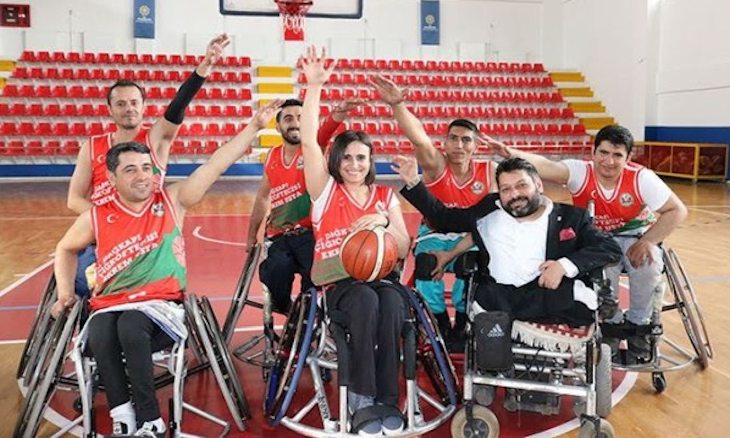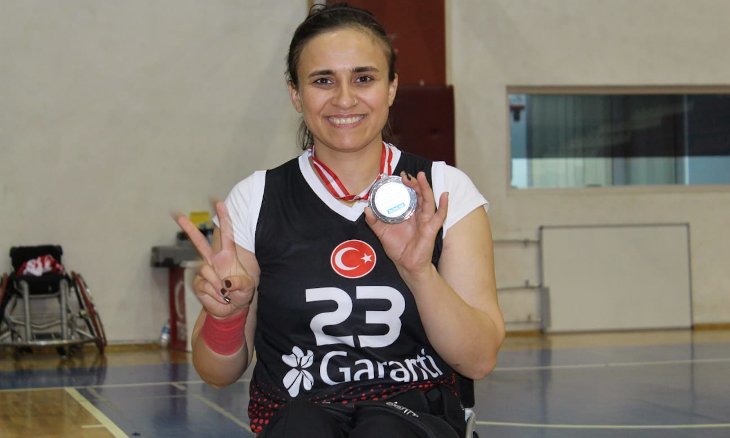State's 'disability-friendly' house challenges Turkish sportswoman in wheelchair
A basketball player with disabilities has urged Turkish authorities to build an elevator in her "disability-friendly" house, saying that she leaves and comes back to her house with the help of her siblings carrying her. The house is the latest obstacle in her life, which is filled with hardships that she overcame with her ambition.
Vecdi Erbay/ DUVAR
A disability-friendly house built by the state has made life challenging for a basketball player with disabilities, with the woman missing out her workouts and matches because of the lack of an elevator.
Ebru Akıcı, who uses a wheelchair, has been leaving and coming home with the help of her siblings carrying her up the several flights of stairs in a building constructed by the Housing Development Administration of Turkey (TOKİ).
The 35-year-old Akıcı, who is the only female player on a local wheelchair basketball team, said that she has been unable to attend workouts and matches due to the malfunctioning elevator in her home.
Despite repeatedly contacting TOKİ administration and the Presidency's Directorate of Communications (CİMER), Akıcı never received a response, until eventually a TOKİ official replied by threatening to kick her out of the house.
Though TOKİ is officially the country's mass public housing agency, critics say it operates more like a real estate agent, working with private firms and contractors and building housing complexes and shopping malls, sports complexes and amusement parks and not actually focusing on a commitment to providing affordable housing to those in need.
When Akıcı heard that TOKİ was constructing homes that were suitable for people with disabilities, she applied to purchase one, filing all of the necessary applications and payments.
She was supposed to receive the keys to her home in June of last year but didn't actually get them until a year later. According to TOKİ, this was because a contractor hired to build the building had gone bankrupt and fled the site.

Upon receiving the keys, Akıcı wasn't able to get into the building and had to call a locksmith. When she entered, she realized that the building was made from poor materials, there was no electric or heating, and that despite being billed as suitable for people with disabilities, the only feature was a ramp outside the entrance.
The debacle with her TOKİ is the latest in a series of struggles that Akıcı has faced.
Her family moved from their village to the city in the 1990's where Akıcı completed elementary and middle school. But her father was unable to grow accustomed to city life, returning to the family's village. Akıcı was unable to continue her studies as there was no high school in the village.
At the age of 19, due to local traditions, Akıcı's family wanted to marry her off to her cousin.
“We could still have been considered children. But we come from an aşiret [regional tribe] and there are tribal traditions. Even if I didn't want to we were going to get married. As a result of village traditions, most people are married to relatives. In particular, they don't want to [marry off] girls to those outside,” Akıcı said.

It was this predicament that led to her disability. A suicide attempt in order to avoid the wedding via a gunshot left her unable to walk and as a result, Akıcı shut herself at home for seven years.
Eventually, while receiving treatments, Akıcı came across wheelchair basketball and has played on two area teams. She had already played the sport during elementary and middle school.
Following a life full of troubles, Akıcı's latest is her TOKİ home and the negligence on the part of the administration.
“Now, am I disabled or am I being disabled?” she said.
